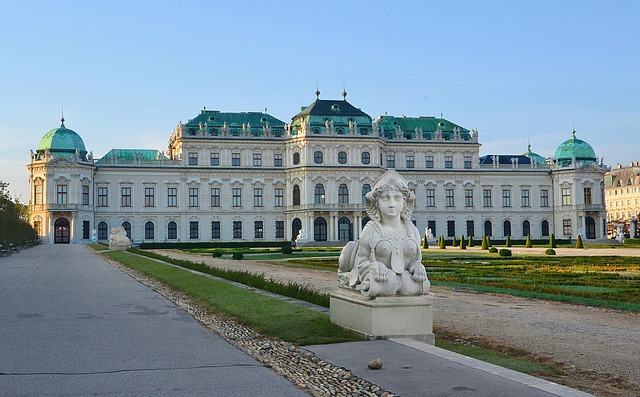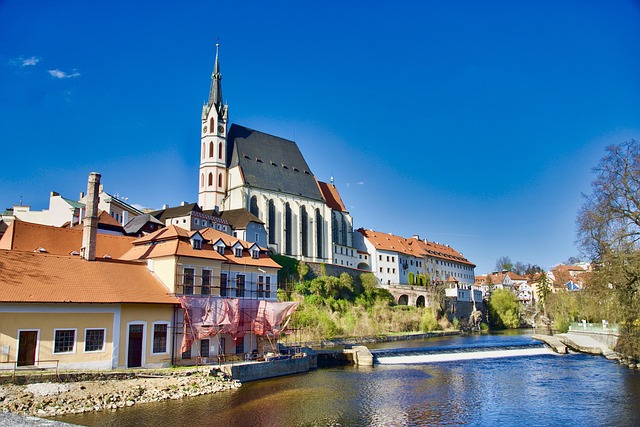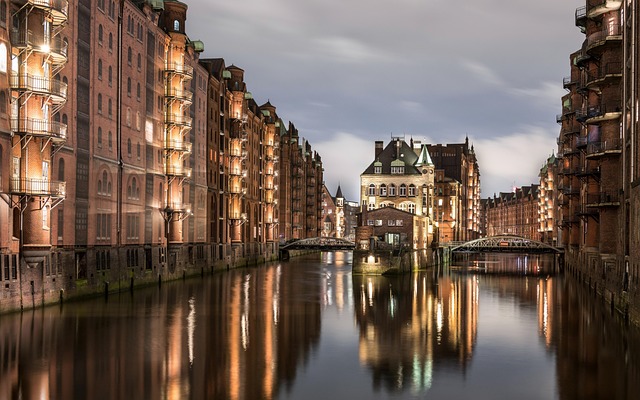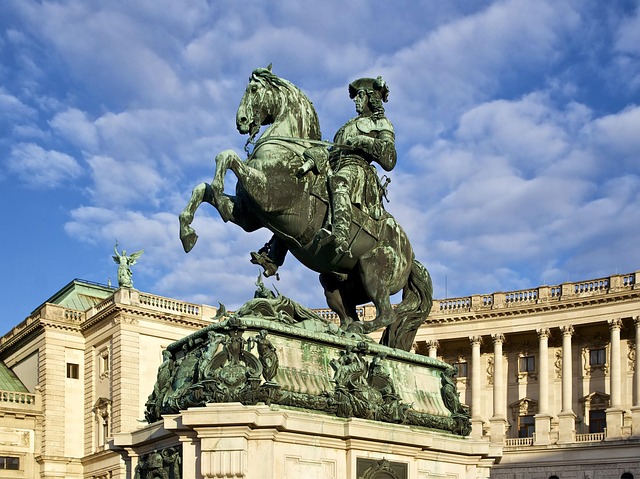Category: The History of Eugene Oregon
The History of Eugene, Oregon: A Comprehensive Journey
Introduction
Eugene, Oregon, nestled in the heart of the Willamette Valley, boasts a rich history that has shaped its unique character as a vibrant college town and cultural hub. This article delves into the multifaceted narrative of Eugene’s past, tracing its evolution from a modest settlement to a thriving metropolis. Through this journey, we will explore how historical events, demographic shifts, and economic transformations have contributed to the city’s identity and its impact on the region. By understanding Eugene’s history, we gain valuable insights into the factors that drive urban development and cultural dynamics.
Understanding The History of Eugene Oregon: A Journey Through Time
Historical Context and Early Settlement
The story of Eugene begins in the mid-19th century when Native American tribes, including the Kalapuya and Yamhill, inhabited the lush Willamette Valley. In 1847, the United States government established a treaty with these tribes, opening the door for European-American settlers. The area that is now Eugene was first surveyed in 1852, and its official incorporation as a city occurred on February 21, 1859, making it one of Oregon’s oldest cities.
The settlement’s early growth was fueled by agriculture, particularly wheat farming, which attracted pioneers seeking fertile land. The city’s strategic location along major rivers and transportation routes further facilitated its development. In the late 19th century, Eugene became a vital stop on the railroad line connecting Portland to Sacramento, California, fostering economic growth and connectivity.
Key Milestones and Development
- 1860s-1870s: Eugene experiences a population boom, attracting merchants and artisans who establish businesses along Willis Street, the city’s main commercial hub.
- 1878: The University of Oregon is founded, becoming a cornerstone of the city’s identity and contributing significantly to its cultural and intellectual landscape.
- Late 19th Century: Eugene becomes known as the “Pine City” due to the extensive pine forests surrounding it, which fueled the local economy through logging and wood products.
- 1905: The Lewis and Clark Centennial Exposition is held in nearby Portland, bringing national attention to the region and increasing interest in Eugene’s natural attractions.
- Post-World War II Era: Eugene undergoes urban renewal, with the construction of new housing developments and the expansion of its infrastructure to accommodate a growing population.
- 1960s-1970s: The city becomes a hub for counterculture movements, drawing young people from across the country and fostering a vibrant music and arts scene.
Global Impact and Trends
Eugene’s history is not solely confined to its local context; it has been influenced and shaped by global trends and international events. Its development as an educational center and cultural hotbed can be linked to broader academic and artistic movements worldwide. The city’s engagement with environmental issues, notably its early embrace of sustainable practices, reflects a growing global awareness of ecological stewardship.
Internationally, Eugene has gained recognition for its progressive policies and commitment to social justice. Its diverse population and inclusive community have attracted students and scholars from around the globe, contributing to a rich cultural exchange. The city’s participation in international conferences and collaborations on environmental conservation efforts showcases its global influence.
Economic Considerations: Driving Forces and Market Dynamics
Historical Economic Base
Eugene’s economy has evolved over time, with agriculture serving as its foundation during the early years. Wheat farming and livestock ranching were primary industries, contributing significantly to the city’s growth. The logging industry also played a vital role, utilizing the abundant pine forests surrounding the area. As the 20th century progressed, the service sector emerged as a significant contributor, with education, healthcare, and tourism becoming key economic drivers.
Market Dynamics and Investment Patterns
- Education and Research: The presence of the University of Oregon has been pivotal in shaping Eugene’s economy. The university attracts students and scholars globally, boosting the local service sector and fostering a vibrant research environment. This academic focus has also led to significant investments in technology and innovation, with startups and research institutions contributing to the city’s growing reputation as a tech hub.
- Tourism: Eugene’s natural beauty, cultural attractions, and outdoor recreational opportunities make it a popular tourist destination. The tourism industry generates substantial revenue, supporting local businesses and creating employment opportunities.
- Agriculture and Food Systems: While agriculture is no longer the primary economic force, local farming remains important. Eugene has developed a thriving farm-to-table movement, with farmers’ markets, sustainable agriculture initiatives, and culinary establishments promoting locally sourced produce. This trend aligns with global movements toward food security and sustainability.
Investment Opportunities and Challenges
Eugene’s diverse economy presents various investment prospects, particularly in real estate, technology startups, and renewable energy projects. The city’s quality of life, excellent educational institutions, and vibrant cultural scene make it an attractive destination for businesses and entrepreneurs. However, challenges such as rising housing costs and competition from larger urban centers require strategic approaches to ensure sustainable economic growth.
Technological Advancements: Shaping the Modern Landscape
Historical Innovations
Eugene’s history is intertwined with technological progress, from its early days as a transportation hub to its modern era as a center for emerging technologies. The city has been at the forefront of several key innovations:
- Railroad and Transportation: Eugene’s strategic location along rail lines and its subsequent development of bus and light rail systems have facilitated efficient transportation, connecting the city to regional and national networks.
- Telecommunication: In the 1960s, Eugene became a pioneer in community-owned telecommunications with the establishment of EMOS (Eugene Municipal Cable Operations), later known as EWEB (Eugene Water & Electric Board). This cooperative model provided cable television and internet services, empowering local control over critical infrastructure.
Current Technological Trends and Future Potential
Smart City Initiatives: Eugene has embraced smart city technologies to enhance urban living. These include advanced energy management systems, smart traffic lights, and a robust digital infrastructure that supports remote work and online education. The city’s focus on sustainability is evident in its adoption of renewable energy sources and the implementation of smart grid solutions.
Tech Startups and Innovation Hubs: The region has emerged as a thriving startup ecosystem, attracting tech talent and fostering entrepreneurship. Incubators and accelerators support innovative ventures in fields such as clean technology, software development, and agtech. This entrepreneurial spirit positions Eugene as a potential game-changer in the tech industry.
Digital Connectivity and Remote Work: The COVID-19 pandemic accelerated the trend of remote work, and Eugene has capitalized on this by promoting itself as an attractive location for digital nomads and remote workers. High-speed internet access, combined with the city’s quality of life, makes it a desirable destination for tech professionals seeking a balanced lifestyle.
Policy and Regulation: Shaping the City’s Development
Legislative Frameworks
Eugene’s development has been guided by a series of policies and regulations that reflect its values and aspirations. The city’s governance is characterized by a strong commitment to environmental sustainability, social equity, and community engagement. Key legislative frameworks include:
- Zoning Ordinances: Eugene has implemented comprehensive zoning laws to maintain a diverse range of residential, commercial, and industrial areas. These regulations ensure balanced development and protect sensitive environmental zones.
- Land Use Planning: The city’s land use planning processes prioritize open spaces, parks, and green infrastructure. This approach aims to preserve natural beauty while accommodating urban growth.
- Environmental Regulations: Eugene has been at the forefront of environmental protection, adopting strict pollution control measures and promoting renewable energy initiatives. The city’s waste management systems and recycling programs are models for sustainable practices.
Impact on Development and Community Wellbeing
These policies have had a profound impact on Eugene’s development, shaping its physical layout and contributing to a high quality of life. The city’s emphasis on walkability, bike-friendly infrastructure, and public transportation reflects a commitment to reducing urban sprawl and promoting sustainable mobility.
Moreover, Eugene’s inclusive policy approach has fostered a diverse and welcoming community. Anti-discrimination laws and initiatives aimed at social justice have made the city a model for equality and diversity. These policies not only protect citizens’ rights but also contribute to economic vitality by attracting a wide range of talent and perspectives.
Challenges and Criticisms: Overcoming Barriers to Progress
Urban Sprawl and Infrastructure Stress
One of Eugene’s primary challenges is managing urban growth while preserving its natural environment. The city has experienced rapid population expansion, leading to issues related to traffic congestion, housing affordability, and strain on public services. To address these problems, sustainable development strategies are essential, including compact urban design, improved public transportation, and efficient land use planning.
Housing Affordability and Homelessness
The housing crisis is a significant concern in Eugene, with rising home prices and rental costs pushing low- and middle-income families out of the city. This issue has contributed to an increase in homelessness, particularly among vulnerable populations. Addressing this crisis requires collaborative efforts between government agencies, non-profits, and developers to create affordable housing options and support services for the homeless community.
Criticisms of Regulatory Burdens
Some critics argue that Eugene’s stringent regulations, while well-intentioned, can hinder business growth and innovation. They suggest that a balance must be struck between environmental protection and economic development to ensure the city remains competitive while preserving its unique character.
Case Studies: Successful Applications and Lessons Learned
Case Study 1: Riverfront Revitalization
The transformation of Eugene’s riverfront area is a remarkable example of urban renewal. The city invested in reclaiming the banks of the Willamette River, creating a vibrant public space that includes parks, walking paths, and outdoor events. This project has become a cultural hub, attracting visitors and residents alike. Lessons learned include the importance of community engagement in planning, sustainable design principles, and the economic benefits of revitalizing underutilized spaces.
Case Study 2: Sustainable Food Systems
Eugene’s commitment to local and sustainable food systems is evident in its thriving farmers’ markets, community gardens, and culinary scene focused on farm-to-table dining. The city has implemented policies to support local agriculture, such as reduced food miles and organic farming practices. This case study demonstrates the positive impact of these initiatives on both public health and the environment.
Future Prospects: Emerging Trends and Strategic Considerations
Technological and Economic Growth
Eugene is poised for further technological and economic growth, driven by its vibrant startup ecosystem and research institutions. The city should focus on attracting and retaining tech talent, fostering innovation, and supporting the expansion of clean technology and sustainable businesses. Investing in digital infrastructure and promoting remote work opportunities can enhance Eugene’s appeal as a high-tech hub.
Environmental Sustainability and Climate Resilience
Addressing climate change is a critical priority for Eugene. The city should continue to embrace renewable energy sources, implement green building codes, and promote sustainable transportation options. Adapting to climate impacts, such as increased extreme weather events, requires robust infrastructure and emergency response planning.
Community Engagement and Social Equity
Ensuring that all citizens have access to opportunities and resources remains a key focus. Eugene should continue to prioritize social equity initiatives, community engagement in decision-making processes, and supporting vulnerable populations. Addressing systemic inequalities will contribute to a more inclusive and cohesive society.
Conclusion: A City on the Rise
Eugene, Oregon, has traversed an extraordinary journey from its humble beginnings as a pioneer settlement to a thriving cultural and economic center. Its history is a testament to the resilience and innovation of its residents, who have shaped a city that balances its rich heritage with modern aspirations. Through navigating challenges and embracing opportunities, Eugene has emerged as a model for sustainable urban development, environmental stewardship, and community engagement.
As we look to the future, Eugene’s potential continues to unfold. By building upon its strengths in education, technology, and environmental consciousness, the city can further enhance its reputation as a desirable place to live, work, and visit. The history of Eugene Oregon is not just a narrative; it is a living, breathing entity that inspires and guides its citizens toward a prosperous and inclusive future.
FAQ Section: Answering Common Questions
Q: How has Eugene’s location influenced its historical development?
A: Eugene’s strategic location along major rivers and transportation routes played a pivotal role in its early growth. It facilitated trade, migration, and connectivity, attracting settlers and businesses alike.
Q: What makes Eugene unique compared to other cities in the Pacific Northwest?
A: Eugene stands out for its blend of natural beauty, vibrant cultural scene, and strong commitment to environmental sustainability. The city’s rich history, coupled with its progressive policies and diverse economy, sets it apart as a unique destination.
Q: How is Eugene addressing the housing crisis?
A: The city is tackling the housing crisis through various strategies, including affordable housing initiatives, land use planning, and collaboration with non-profits and developers to create more accessible housing options for all income levels.
Q: What are some notable cultural events in Eugene’s calendar?
A: Eugene hosts a variety of cultural events throughout the year, such as the Oregon Shakespeare Festival, the Eugene Music Festival, and the Lane County Fair. These events celebrate the city’s artistic and culinary heritage, attracting visitors from around the world.
Q: How is Eugene preparing for future climate challenges?
A: The city is proactively addressing climate change by transitioning to renewable energy sources, implementing green building codes, and promoting sustainable transportation options. These efforts aim to build a more resilient and environmentally friendly community.
Eugene’s Cultural Evolution: From Settlers to Shaping Identity
Unveiling Eugene Oregon’s Historic Treasures: University to Nature

The University of Oregon campus showcases a diverse architectural history, from Victorian to modern…….
Eugene’s Environmental Roots: A 20th Century Awakening
Eugene’s Gold Rush Legacy: Historical Landmarks Unveiled
Eugene’s Evolution: Transportation & Cityscape in the 20th Century
Eugene’s Environmental Roots: Landmarks in History and Nature

Eugene, Oregon, boasts a rich history of environmental awareness since the mid-20th century, evident…….
University of Oregon: Roots to Global Environmental Impact

The University of Oregon, with roots in 1960s/70s activism, has deeply influenced environmental stew…….














